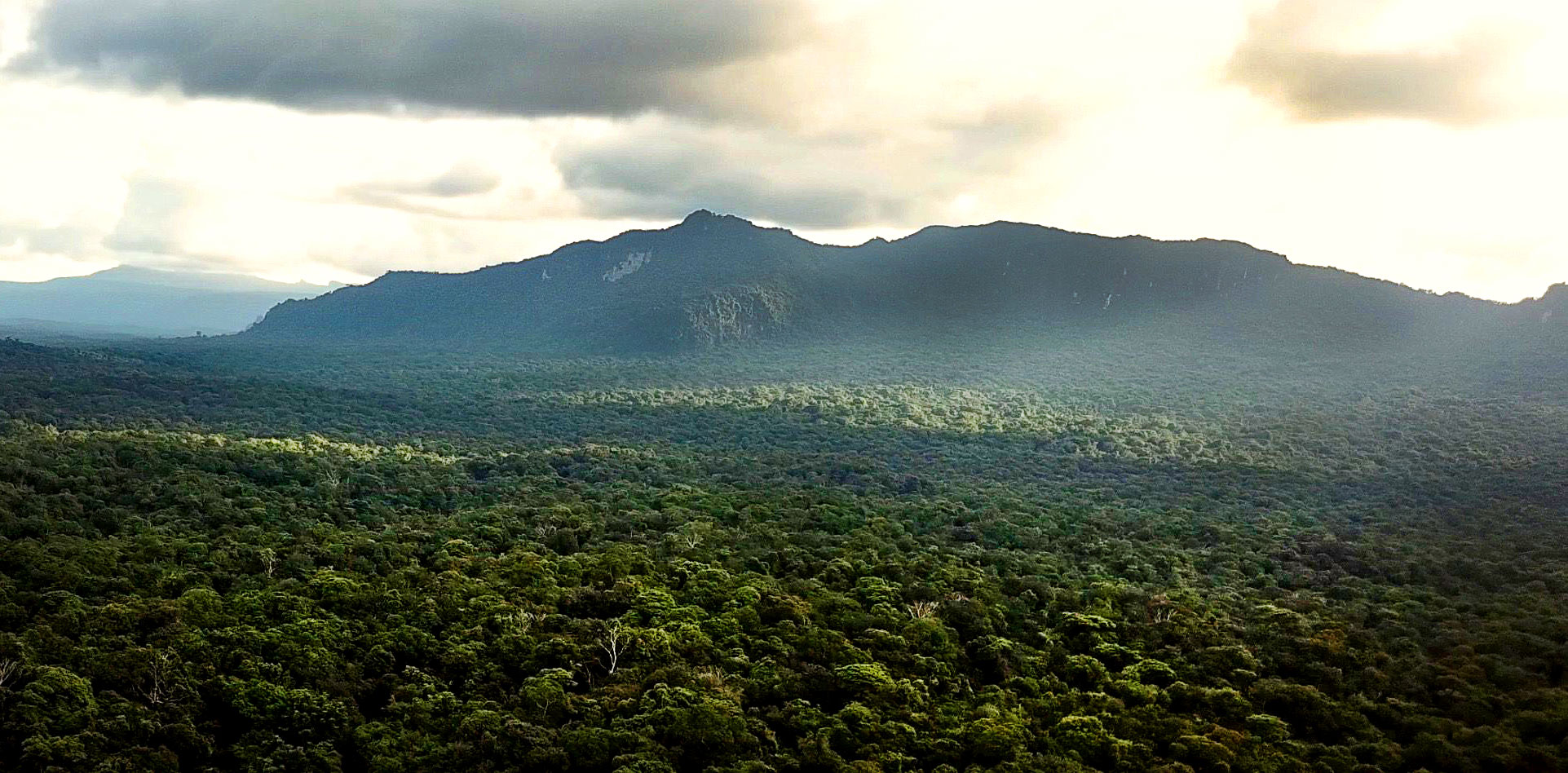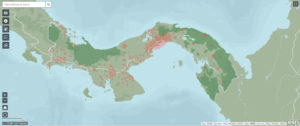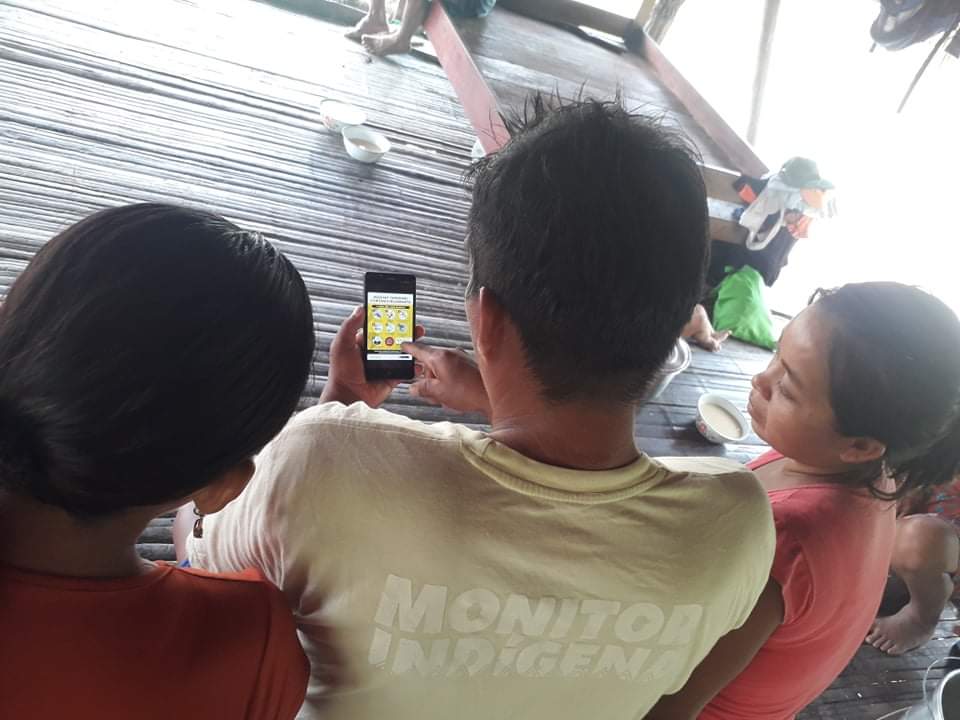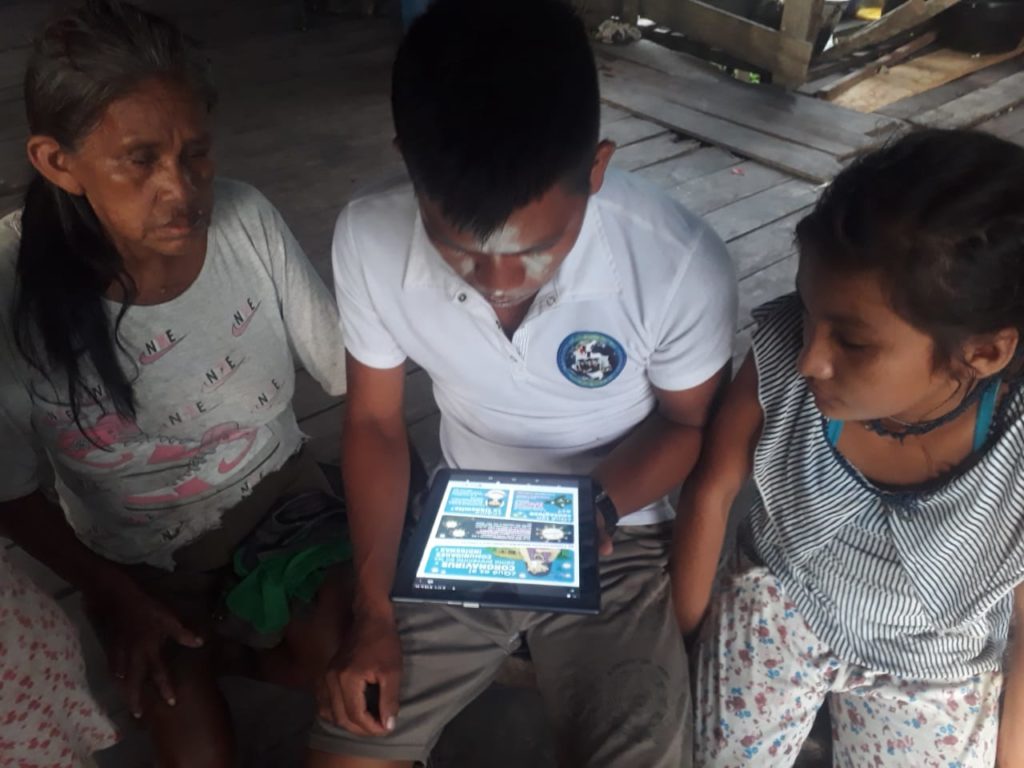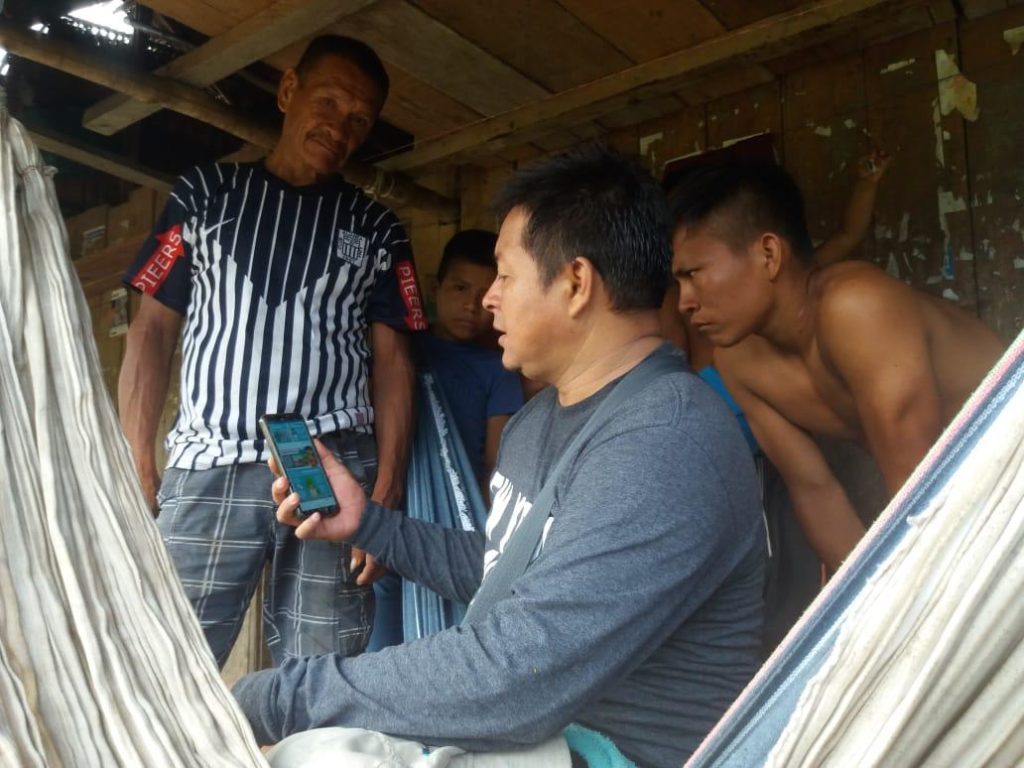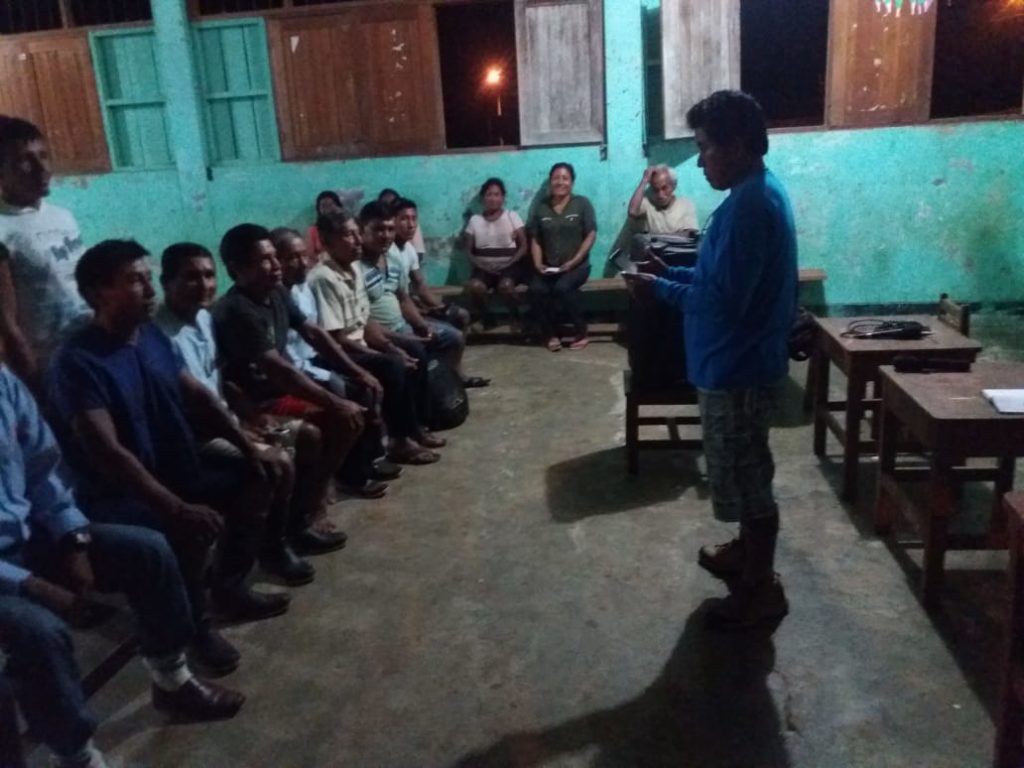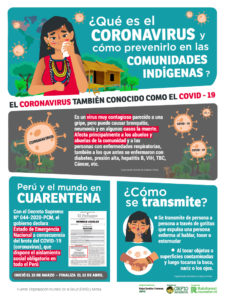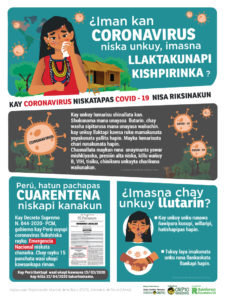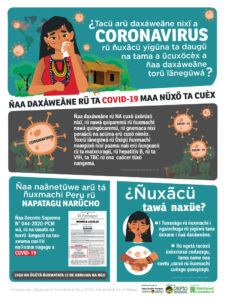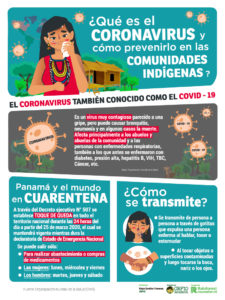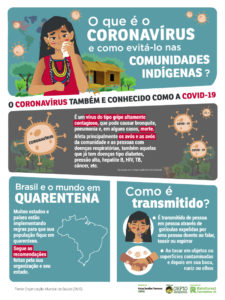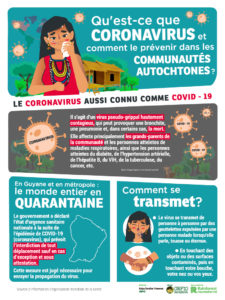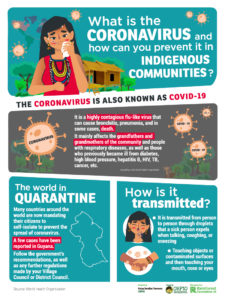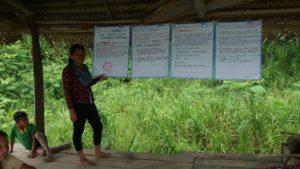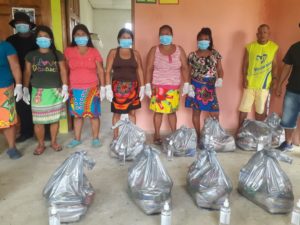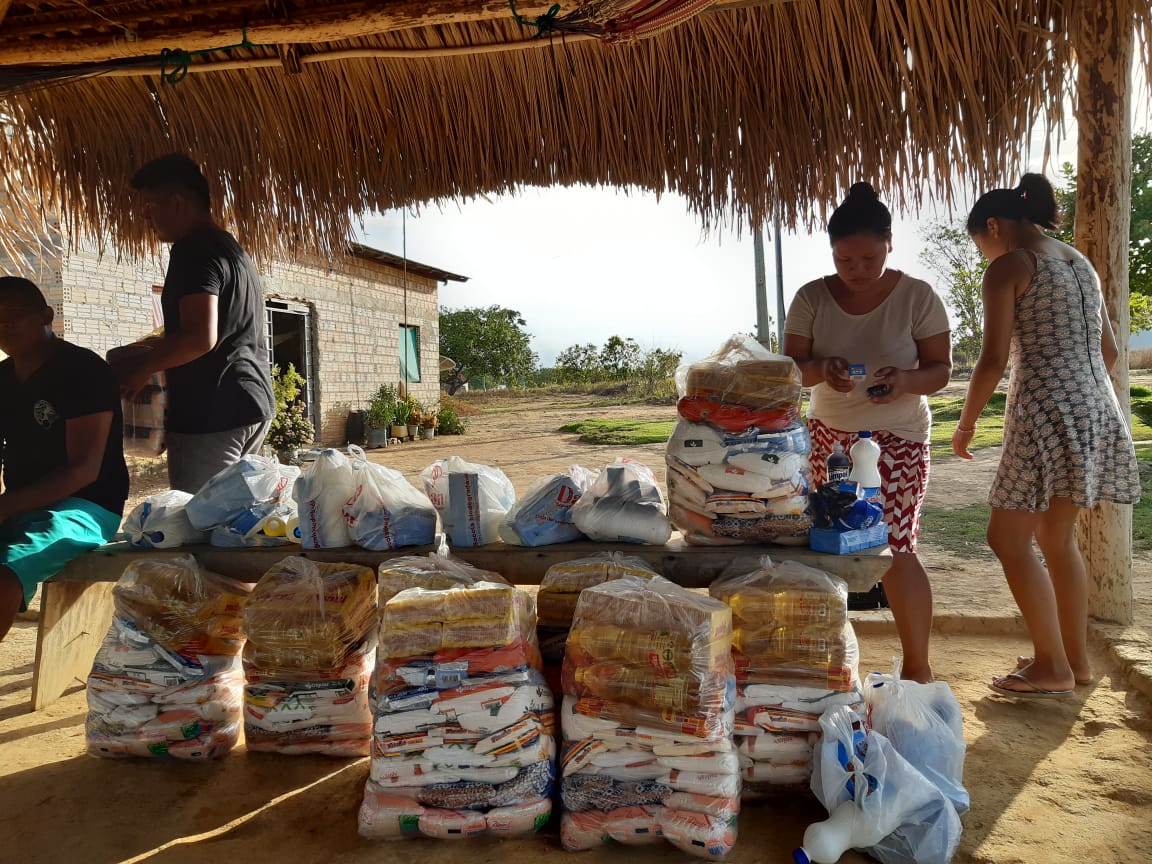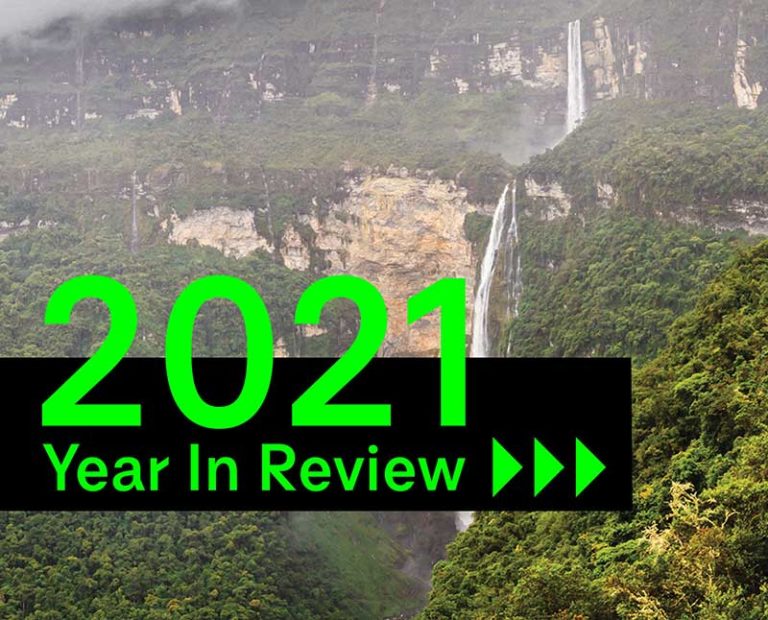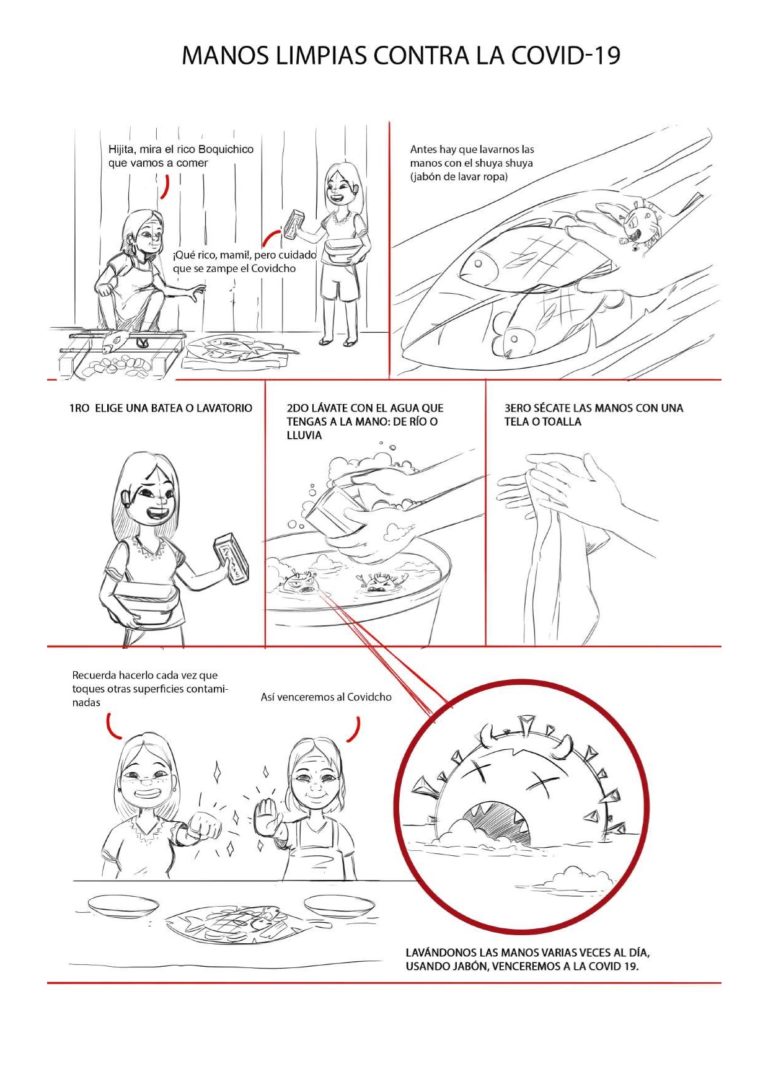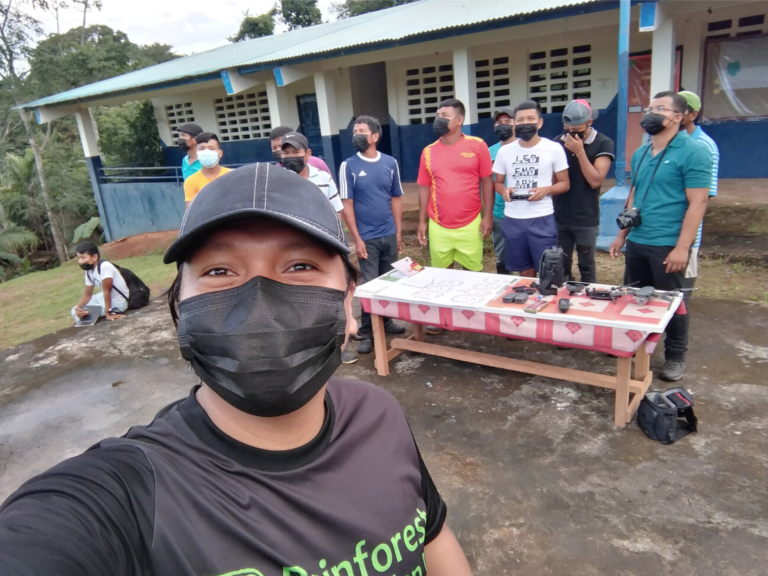.
A Call to Protect Rainforest Peoples From COVID-19
A joint statement from the Rainforest Foundations of Norway, UK, and US
The novel coronavirus pandemic sweeping the world is quickly reshaping everyone’s lives in ways very few people could have imagined. Unfortunately, for indigenous peoples and traditional forest populations around the globe, there is nothing novel about this pandemic.
It is estimated that the measles, malaria, and influenza that came with colonization was responsible for two-thirds of the deaths in indigenous Amazonian communities between 1875 and 2008. More recently, the Ebola crisis has devastated local communities in Central and West Africa.
Today, rainforest peoples already experience disproportionate rates of infection and illness resulting from lower levels of immunity to Western diseases. In the Amazon, there are dozens–maybe even hundreds–of unique indigenous peoples living in voluntary isolation. With little or no contact with the outside world, they are at even greater risk of infection. Weak local health care systems are largely ill-prepared to meet the needs of routine services, let alone the level of response this pandemic demands.
Past and present, these experiences reveal that rainforest peoples may be particularly vulnerable to the devastating effects of COVID-19. Meanwhile, the unrelenting encroachment on their traditional lands for resource extraction, agribusiness and associated infrastructure development severely threatens them with exposure to the virus.
This is why the Rainforest Foundations of Norway, UK, and US have joined together to support the calls of indigenous peoples’ organizations and those of traditional forest communities from across the world to mitigate the extraordinary threat posed by COVID-19.
We join them to reiterate – to governments at all levels, to industry, civil society, houses of worship, to all those whom live or work near traditional communities, and to the broader international community – their appeals to:
1. Enforce strict travel restrictions to indigenous people and forest community territories wherever possible and in coordination with local indigenous and community leaders. This is especially true for populations living in voluntary isolation.
2. Effective measures such as Brazil’s no-contact policy should be enforced.Ensure that medical outposts near indigenous and traditional people’s territories are well equipped and staffed with qualified personnel.
3. When a vaccine is developed, ensure it quickly reaches the most vulnerable.
4. Ensure that all public health alerts and information are translated into local and indigenous languages and are widely broadcast.
5. Consult early with local and indigenous leadership in any decisions that affect them, especially in anticipation of possible coronavirus outbreaks in their territories.
Protecting the rainforest and defending the rights of those who are their true guardians–indigenous peoples and traditional forest populations–is vital to the protection of life on Earth as we know it. Science proves that forests protected and managed these groups store more carbon, harbor more biodiversity, and experience lower rates of deforestation than any other forest management systems.
While this pandemic reminds us of the vulnerability faced by the guardians of the world’s rainforests, it is in the interests of us at all times to protect them and the forests they call home.
May you all stay well and safe.
Rainforest Foundation Norway
Rainforest Foundation United Kingdom
Rainforest Foundation United States
Rainforest Foundation was founded 30 years ago to promote the rights of indigenous peoples living in the rainforest and to support them and other forest communities in their effort to protect and defend their territories. Since its founding, the Rainforest Foundations of Norway, the UK and the US have together supported indigenous peoples’ efforts to protect more than 13 million hectares across four continents.
Read More
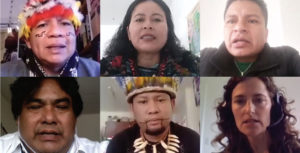
Rainforest Foundation US Partners With Indigenous Peoples and Ally Organizations on New Amazon Emergency Fund
RFUS has joined forces with COICA and other NGOs to establish a fund that supports indigenous communities facing COVID-19.
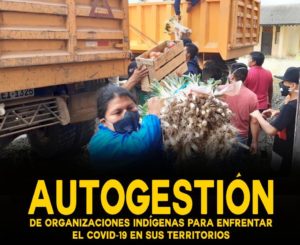
Amazon Emergency Fund Scales Up
The Amazon Emergency Fund (AEF) received a $2 million donation from the French Government to deliver COVID-19 relief to indigenous communities.
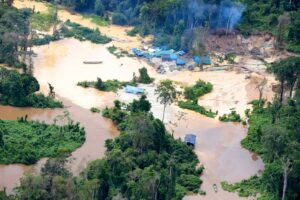
The Inter-American Commission on Human Rights Calls on Brazil to Protect the Yanomami
The Inter-American Commission on Human Rights has called on Brazil to address the COVID-19 pandemic in the Yanomami Territory.
Support Our Work
Rainforest Foundation US is tackling the major challenges of our day: deforestation, the climate crisis, and human rights violations. Your donation moves us one step closer to creating a more sustainable and just future.

